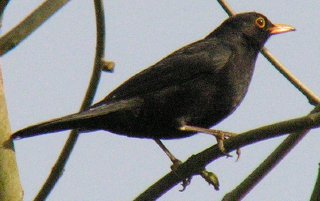With these stark final lines, written in December 1841, the composition of Child Harold comes to an end:
But now loves hopes are all bereft
A lonely man I roam
& abscent Mary long hath left
My heart without a home
Just a few days later Clare is removed from the Northborough cottage to the Northampton General Asylum. Nevertheless, his Scriptural paraphrases continued right up to his removal, finishing with these prophetic (for Clare) lines from Isaiah 47v15:
Thy merchants from thy youth
They shall wander one & all
To his quarters & the truth
Shall leave thee more in thrall
Though slave dealers take thee
though bondsmen enslave thee
There's none shall be able to shield thee or save thee
Although rather changed from the text of the Authorised Version of the Bible that Clare knew, had memorised and loved, these words are dredged up from the depth of his subconscious and desolate state of mind; arguably a true reflection of his inner life at the end of this, the most difficult year of his life.
Obsessed as he is with the veracity of his memory of Mary, Clare finds himself dwelling on a biblical passage of doom and loss. Composing a long paraphrase of the prophecy, with that final denouement — ‘though bondsmen enslave thee’ — laying in wait. He finds himself writing a prophecy of his own judgment and removal.
I must admit that these poetic paraphrases, coupled with the final four lines of ‘I think of thee…’ to me do read like a prophetic utterance, a premonition of his of own fate.
While life breaths on this earthly ball
What e'er my lot may be
Wether in freedom or in thrall
Mary I think of thee
(Child Harold)
Shall leave thee more in thrall
Though slave dealers take thee
(Isaiah 47v15b)
In due course the ‘slave dealers’, in the form of Parson Glossop, Fenwick Skrimshire and William Page, arrive at the cottage and there are none able to shield him or save him, estranged as he was… ‘a stranger to his own family’.
Clare arrived at the asylum committed ‘After years addicted to poetical prossing’ (sic), and became in his own words, ‘a thrall’ — one who is enslaved, or in bondage.
Roger Rowe

















